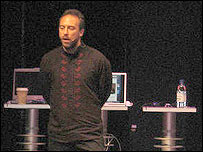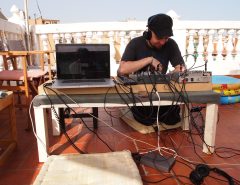http://news.bbc.co.uk/2/hi/technology/4683385.stm
Co-opting the creative revolution
By Jo Twist [BBC News science and technology reporter]
Digital technology is providing people with the tools to produce and share content like never before, and it is set to throw the relationship between them and institutions into turmoil, say experts.
«I am predicting 50 years of chaos,» says leading digital thinker Clay Shirky. «Loosely organised groups will be increasingly given leverage. «Institutions will come under increasing degrees of pressures and the more rigid they are, the more pressures they will come under. […]
Just because something is created by anyone with a net connection and some sort of know-how, existing outside of formal, does not make it any less accurate or useful, say the digital thinkers of our times.
«For the first time since the industrial revolution, the most important means and components of core economies are in the hands of the population at large,» explains Yale Law professor Yochai Benkler.
Computation, in other words, is in the hands of the entire population. And those computing tools are getting easier to use, more approachable, as well as more powerful. Blogging, services, tag-based applications to help people find content, peer-to-peer ways of distributing content, grid computing, open source software, are all examples of how this is happening online now.

** TED (Technology, Entertainment and Design) conference in Oxford, UK.




Leave a Reply
Lo siento, debes estar conectado para publicar un comentario.